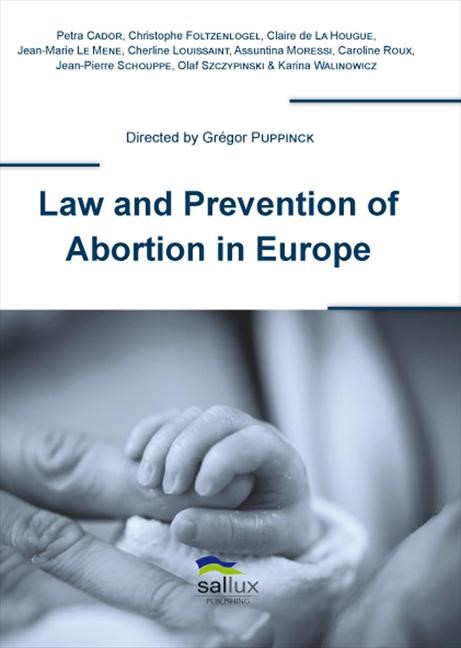The widespread recourse to abortion is a social issue and public health problem which society must solve with a prevention policy.
Abortion is a public health problem
Every year in France, nearly 215,000 women end their pregnancies; more than 8 million abortions were performed since 1975, representing a quarter of all births. The abortion rate in France remains one of the highest in Europe and is increasing particularly among young people: nearly 10% of Parisian high school girls aborted and 31% have already used the "morning-after pill" at least once.
Abortion has considerable and undeniable cultural, demographic, economic and social consequences. 42% of women who had an abortion before the age of 25 go through a depression. Half of the women who had an abortion when they were minor suffer from suicidal thoughts. Women having had an abortion are three times more likely to suffer physical, mental or sexual abuse than women who went through their pregnancies.
According to an IFOP poll in 2016, 89% of French women acknowledged that "abortion leaves psychological traces difficult to live with for women" and 72% of them believe that "society should do more to help women avoid abortion."
It is possible to reduce the recourse to abortion
Abortion is not inevitable; many countries have managed to reduce the abortion rate thanks to prevention policies.
In Italy, for example, the number of abortions fell by 56% between 1982 and 2013, reaching 102,000 i.e. half the number of abortions in France for a country slightly smaller. Yet in Italy, abortion and contraceptive rates are among the lowest in Europe. In Germany, the number of abortions declined from 135,000 to 99,000 between 2001 and 2015, and Latvia from 13,000 to less than 5,300 between 2004 and 2013, etc.
In the US, the teenage pregnancy rate was reduced by half between 1990 and 2010 thanks to a campaign centered on abstinence to value sexuality and human life, and to make teenagers aware of their responsibilities. The number of high school seniors declaring to be abstainers has doubled from 33% to 66%, causing a reduction of two thirds of abortions among young people, a decline of STDs and an improvement in their emotional and psychological balance.
Many concrete preventative measures need to be implemented, aiming in particular at better educating young people, at helping women and at empowering fathers.
Reducing the recourse to abortion should be a priority
Reducing the recourse to abortion is not only a duty for women, children and the whole society's welfare. It is also an obligation contracted by France in international law. France has indeed committed itself to support family, motherhood and children "before as well as after birth" (Convention on the Rights of the Child), to "reduce the recourse to abortion" and to "take appropriate steps to help women avoid abortion" (Cairo Conference). The Council of Europe also called on European states to "promote a more pro-family attitude in public information campaigns and provide counselling and practical support to help women where the reason for wanting an abortion is family or financial pressure." (PACE, 2008).
The call
The widespread use of abortion is a social problem and a matter of public health that affects the whole society and engages our future.
We call on politicians to commit themselves to implement a real abortion prevention policy, particularly with young people.
Please sign our call and share it.
Food for thought
Our book "Law and Prevention of Abortion in Europe" is now available in English with Sallux Publishing (292 pages, 19.50€).
Brief overview of the book: "Droit et prévention de l'avortement en Europe"








